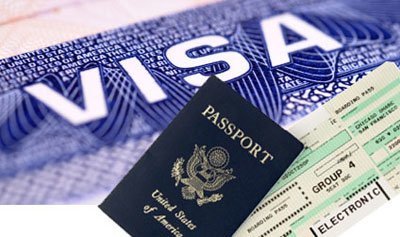
Fresh facts have emerged on how Canadian Consular Officers in Nigeria particularly and Africa stereotype Nigerians by denying them studying visas based on biases and discrimination even though they are qualified.
A report commissioned by the Department for Immigration Refugee and Citizenship Canada (IRCC) has revealed.
It also revealed that “the visa officers stereotype Nigerians as particularly corrupt and untrustworthy, and refer to African countries as “the dirty 30”.”
In an emailed interview with ARISE NEWS Channel, an assistant professor of Artificial Intelligence and Law at the University of Calgary, Canada, Gideon Christian said “the Report specifically cited Nigeria as a country that was adversely impacted by racism in the processing of immigration applications by this government department.”
Chronicling the genesis of the report and his work, Christian explained that as “the President of African Scholars Initiative (ASI-Canada) – a registered Canadian charity that seeks to mentor bright future scholars of African descent who intend to pursue graduate education in Canada.
We basically seek to identify bright graduates from Africa and then assist them to come to Canada to pursue further education. We assist them through the admission process and the study visa process. We have had tremendous success in the admission processing stages.
But it is sad then after successfully going through the admission process, most of these bright graduates cannot make it to Canada because of visa refusals at Canadian visa offices in Africa.
Since 2017, I have been tracking the Canadian study visa approval rate for applicants from Africa. The rate has consistently been plunging. The situation became very alarming when I received the statistics for the Canada study visa approval rate for Nigeria which showed a dismal approval rate of 11.8 per cent,” he noted.
According to him, “Nigeria is among the top 10 source countries for Canadian study visas. At this point in time, other top 10 countries like Korea and Japan had 95 per cent and 97 per cent approval rates.
Shortly after I got hold of this data, a report that was commissioned by the Immigration Refugee and Citizenship Canada (the Canadian government department responsible for immigration) was released. The Report specifically cited Nigeria as a country that was adversely impacted by racism in the processing of immigration applications by this government department.”
Armed with the new evidence, he said he decided to act by quickly coordinating a group of Nigerian professors and graduate students in Canada. “We wrote a letter to the Canadian Immigration Minister drawing his attention to the report and the data and requesting that steps be taken to address the unfair treatment of Canadian study visa applicants from Nigeria. We got a cursory and unsatisfactory response from the Canadian Immigration Minister.
So, in my capacity as president of the African Scholars Initiative (ASI-Canada) I wrote a letter to the Canadian House of Commons Committee on Citizenship and Immigration drawing their attention to the report and requesting a hearing to address the issues raised in the report.
This culminated in a hearing by the Committee in which I was invited as one of the witnesses to appear before the parliamentary committee.”
Rationalising why the report was commissioned, Christian stated that the Canadian Association of Professional Immigration Consultants which is an umbrella body of registered immigration consultants in Canada noted that Nigeria is the number three source country for Canadian study visas.
“These Canadian immigration consultants deal with a large Nigerian client base. The consultants became alarmed that most of the applications they file for their Nigerian clients come back refused. So, the body had to commission a study. I believe they were reasonably concerned by the very poor study visa outcome from the Canadian visa offices responsible for processing study visas for Nigerian applicants, as compared to the outcome from other visa offices.”
On why Nigerians and other African students are targeted, Christian explained that.
“Because we are easy targets. Africa lacks the kind of responsible government that is willing to stand up for its citizens when they are subject of ill or biased treatment by foreign governments or their agents. You also have a government that thinks (and wrongly) that it is not in their national interest that their youths should be leaving their home country to travel and reside abroad.”
Asked to throw light on the compulsory imposition of IELTS on prospective students even when they are from English-speaking countries, He explained that “This is very disturbing because Nigeria is an English-speaking country and the language of instruction in its educational system is English. It is even more alarming because Canadian universities waive English language proficiency examinations for Nigerian admission applicants.
So, if the Canadian schools waive it, you wonder why the visa office would demand it. This is an unjustifiable visa application requirement that has no rational objective.
It only enriches third-party organisations like British Council and IDP IELTS Australia while impoverishing the Canadian study visa applicants.
Worse yet, the IELTS exam expires after two years – as if your English proficiency has a two-year life span,” he explained.
